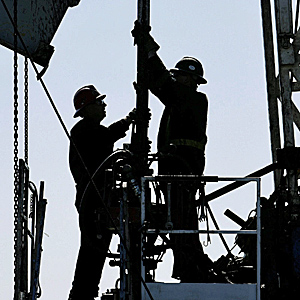 Alberta’s largest oil companies are caught up in the middle of some very public employee drug testing legal debates, and the general public has become familiar with the problem of substance abuse and addiction in Canada’s oil industry. The employee’s camps offer little to no recreational opportunities, the work is demanding and the pay is very lucrative, leading workers to recklessly overindulge in liquor and drugs to amuse themselves. What has to be done to relieve Canada’s oil industry of these problems?
Alberta’s largest oil companies are caught up in the middle of some very public employee drug testing legal debates, and the general public has become familiar with the problem of substance abuse and addiction in Canada’s oil industry. The employee’s camps offer little to no recreational opportunities, the work is demanding and the pay is very lucrative, leading workers to recklessly overindulge in liquor and drugs to amuse themselves. What has to be done to relieve Canada’s oil industry of these problems?
The oil industry does provide information to its employees about addiction treatment services, but often workers do not enter willingly. When a worker’s drug test returns positive results, they are frequently offered the choice of being terminated or going through rehabilitation. Many employees have families to support or large financial responsibilities, so they normally select rehab. Opposition to this method of bringing treatment to addicts has pointed out that the motives serve the oil companies rather than the people by protecting the companies from legal disputes. It is argued that rehab and addiction treatment services should be utilized out of human interest, not out of liability avoidance.
Oil employees describe the battle for sobriety in the oil sands as extremely difficult. For an individual trying to stay sober while surrounded by peers who are abusing substances, the challenges are many. There is even pressure to use from other employees, and pressure from the bleak circumstances of living and working in Northern Alberta. There is little to no presence of addiction support in the industry, and the overwhelmingly male worker population tends to stigmatize needing addiction support as a sign of weakness. Addiction treatment services are made available to employees, and these services are used more heavily with each passing year, such as Fort McMurray addiction treatment, Calgary drug rehabilitation and Edmonton alcohol detox services. However, expanding the addiction services network of Northern Alberta, as well as specializing treatment programs specifically for oil workers, will become increasingly more crucial as the oil and gas industry grows throughout Canada.